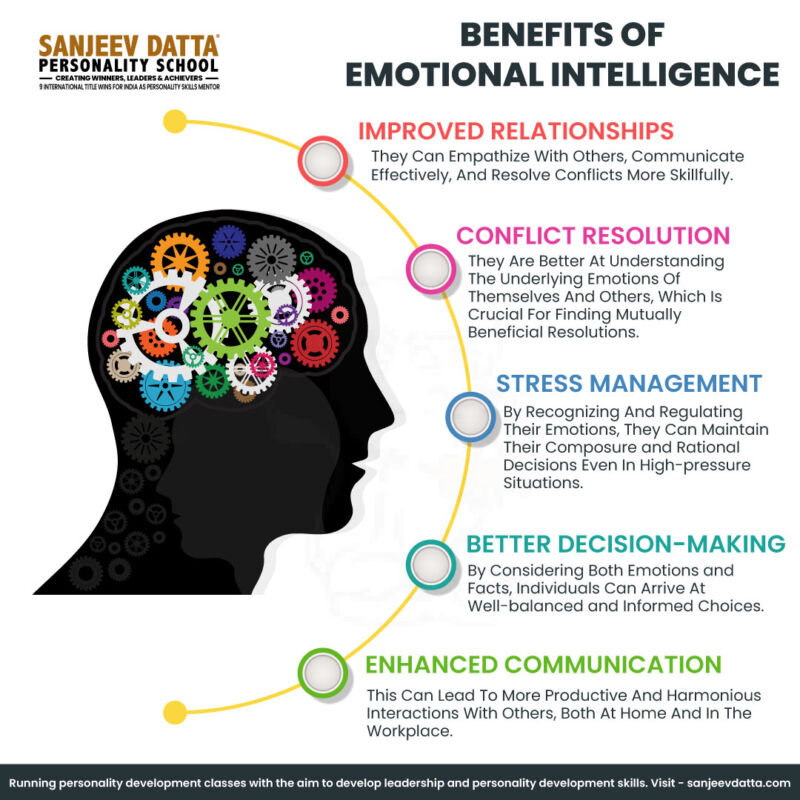In today’s fast-paced world, the ability to cultivate a positive mindset has never been more critical. The power of positive thinking is not just a passing trend; it is a deeply impactful and transformative tool that can shape our lives in remarkable ways. From enhancing our emotional resilience to influencing our social interactions, positive thinking plays a vital role in our personal growth and development. It is the key that unlocks our potential, turning obstacles into opportunities, and helping us foster a personality that radiates confidence, optimism, and strength.
In this comprehensive article, we will delve into the power of positive thinking and explore how it shapes your personality. We’ll uncover the science behind positive thinking, discuss practical techniques to cultivate it, and examine how it impacts various aspects of your personality. Whether you are looking to improve your self-image, boost your mental resilience, or enhance your relationships, embracing the power of positive thinking can lead to profound changes in your life.
The Science Behind Positive Thinking

To understand the transformative power of positive thinking, it is essential to look at the science behind it. Positive thinking is more than just “happy thoughts.” It involves cultivating a mindset that focuses on solutions rather than problems, opportunities rather than limitations, and growth rather than stagnation.
Research in psychology and neuroscience has shown that positive thinking can rewire the brain. Neuroplasticity, the brain’s ability to reorganize itself by forming new neural connections, plays a crucial role in this. When we engage in positive thinking, we activate the brain’s reward centers, which release neurotransmitters like dopamine and serotonin—chemicals that make us feel good. Over time, this practice strengthens neural pathways associated with optimism and emotional resilience, making positive thinking a more natural and automatic response.
Moreover, studies have demonstrated that individuals who engage in regular positive thinking experience lower levels of stress, better emotional health, and improved problem-solving abilities. This is because positive thinking helps to broaden our perspective, allowing us to see a wider range of solutions when faced with challenges. In contrast, negative thinking narrows our focus and can lead to feelings of helplessness and frustration.

The Role of Positive Thinking in Personality Development
Your personality is the sum of your thoughts, behaviors, emotions, and attitudes, all of which are influenced by the way you think. When you practice positive thinking, it not only affects your mood and outlook on life but also shapes the core of who you are. Here’s how:

1. Boosts Self-Confidence
Positive thinking has a direct impact on your self-confidence. When you believe in your abilities and focus on your strengths, you are more likely to take on challenges and step outside of your comfort zone. This, in turn, helps to build a stronger and more confident personality. People who think positively tend to have a higher sense of self-worth because they focus on what they can do rather than what they can’t. They also see setbacks as temporary and manageable, which helps them bounce back from failure more quickly.
2. Increases Emotional Resilience
Life is full of ups and downs, and how we respond to adversity shapes our emotional resilience. Positive thinkers are better equipped to handle stress, disappointment, and challenges because they approach these situations with a mindset of growth and learning. Instead of being overwhelmed by negative emotions, they look for the silver lining and focus on what can be gained from the experience. Over time, this builds emotional resilience, which is a key component of a strong and adaptable personality.
Visit: benefits of digital detox
3. Enhances Social Interactions
Your mindset influences how you interact with others. Positive thinkers tend to be more approachable, empathetic, and supportive in their relationships. They are better at handling conflict and more likely to offer encouragement and solutions rather than criticism and complaints. This not only strengthens their personal and professional relationships but also makes them more charismatic and likable. A positive attitude is contagious, and people are naturally drawn to those who radiate optimism and positivity.
4. Promotes Mental Agility and Creativity
When your mind is free from negative thoughts and self-doubt, you are more open to new ideas and experiences. Positive thinking promotes mental agility, helping you to adapt quickly to changing circumstances and come up with creative solutions to problems. This flexibility and openness are essential for personal growth and development, as they enable you to embrace change and continue learning throughout your life.
5. Fosters a Growth Mindset
One of the most significant impacts of positive thinking is its ability to foster a growth mindset—the belief that you can develop your abilities through effort and perseverance. A growth mindset encourages you to see challenges as opportunities to learn and grow, rather than as obstacles to be avoided. This perspective is crucial for personal development because it motivates you to take action, try new things, and continuously improve yourself. Transform your mindset, transform your life! Our personality development course is designed to help you overcome obstacles and achieve greatness.
Practical Techniques to Cultivate Positive Thinking
While positive thinking may come naturally to some, it is a skill that can be developed with practice. Here are some effective techniques to help you cultivate a positive mindset and harness the power of positive thinking to shape your personality:

1. Practice Gratitude
Gratitude is one of the most powerful tools for shifting your focus from what’s wrong to what’s right in your life. By regularly acknowledging the things you are thankful for, you train your brain to focus on the positive aspects of your life. Start a gratitude journal where you write down three things you are grateful for each day. This simple practice can help you develop a more optimistic outlook and increase your overall sense of well-being.
2. Reframe Negative Thoughts
When you catch yourself thinking negatively, challenge those thoughts and try to reframe them in a more positive light. For example, if you find yourself thinking, “I’m not good enough for this job,” reframe it to, “I have the skills and experience to succeed, and I’m always learning and improving.” By consciously shifting your perspective, you can train your brain to adopt a more positive and constructive mindset.
3. Surround Yourself with Positivity
The people you surround yourself with can have a significant impact on your mindset. Surround yourself with individuals who uplift and inspire you, and who encourage you to think positively. Avoid spending too much time with people who are consistently negative or pessimistic, as their mindset can influence yours. In addition to positive relationships, fill your environment with positive messages—whether it’s through motivational quotes, uplifting books, or inspiring podcasts.
4. Visualization and Affirmations
Visualization is a powerful technique used by athletes, performers, and successful individuals to cultivate a positive mindset. By visualizing your goals and imagining yourself succeeding, you create a mental blueprint for success. Combine this with daily affirmations—positive statements that reinforce your belief in your abilities. For example, you might say, “I am capable of achieving my goals,” or “I embrace challenges with confidence and resilience.” Over time, these affirmations can help reshape your beliefs and attitudes.
5. Mindfulness and Meditation
Practicing mindfulness and meditation can help you become more aware of your thoughts and emotions, allowing you to manage negative thinking more effectively. Mindfulness teaches you to stay present and observe your thoughts without judgment, which can prevent you from spiraling into negativity. Regular meditation can also reduce stress and improve your overall sense of well-being, making it easier to maintain a positive outlook. Set your child up for lifelong success! Develop their emotional intelligence, critical thinking, and communication skills with our proven methods for personality development for kids.
The Impact of Positive Thinking on Key Areas of Life
The power of positive thinking extends beyond shaping your personality—it influences nearly every aspect of your life. Let’s explore how adopting a positive mindset can impact your career, relationships, health, and overall happiness.

1. Career Success
In the professional world, your mindset plays a crucial role in your success. Positive thinkers are more likely to take initiative, pursue new opportunities, and persevere in the face of challenges. They are also better equipped to handle criticism and setbacks, viewing them as opportunities for growth rather than personal failures. Employers and colleagues are drawn to individuals who exude confidence, optimism, and a solutions-oriented approach, making positive thinkers more likely to succeed in their careers.
2. Health and Well-being
Numerous studies have shown a strong correlation between positive thinking and physical health. Individuals who maintain a positive outlook are more likely to engage in healthy behaviors, such as regular exercise, a balanced diet, and adequate sleep. Positive thinkers also experience lower levels of stress, which can reduce the risk of chronic diseases such as heart disease, diabetes, and depression. By reducing stress and promoting healthy habits, positive thinking can contribute to a longer, healthier life.
3. Relationships
Positive thinking plays a pivotal role in the quality of your relationships. People who focus on the positive aspects of their relationships are more likely to experience satisfaction and emotional intimacy with their partners, friends, and family members. Positive thinkers are also better at resolving conflicts and fostering healthy communication, which strengthens their relationships over time.
4. Happiness and Fulfillment
At its core, the power of positive thinking is about living a happier, more fulfilling life. When you focus on the good in your life and approach challenges with optimism, you create a sense of inner peace and contentment. Positive thinkers are more likely to experience higher levels of happiness, even in difficult circumstances, because they believe in their ability to overcome obstacles and grow from their experiences.
Visit: how to break bad habits
Conclusion: Harnessing the Power of Positive Thinking
The power of positive thinking in shaping your personality is undeniable. It has the ability to transform not only the way you perceive yourself but also the way you interact with the world around you. By adopting a positive mindset, you can enhance your self-confidence, build emotional resilience, improve your relationships, and foster a growth mindset that propels you towards success and fulfillment.
In a world filled with challenges and uncertainties, positive thinking acts as a guiding light that leads you towards a more empowered and enriched life. As you continue on your journey of personal development, remember that the power of positive thinking lies within you. By choosing to focus on the positive, you unlock the potential to shape a personality that is resilient, confident, and deeply fulfilled.
Why Sanjeev Datta Personality School?
- Interview Training
- Leadership
- Presentation Training
- Social Boldness
- Dressing Etiquette
- Office Etiquette
- Communication Skills
- English Speaking
- Anger Management
- Time Management
- Team Building
- Performance Enhancer
- Soft Skills
- Goal Setting
- Career Counselling
- Student Subject Choice Counselling
- Listening Skills
- Video Presentation
- Meditation
For more details, contact us now!


